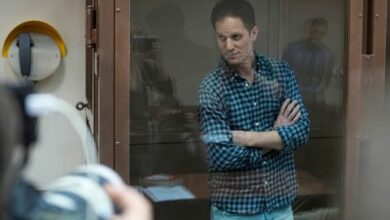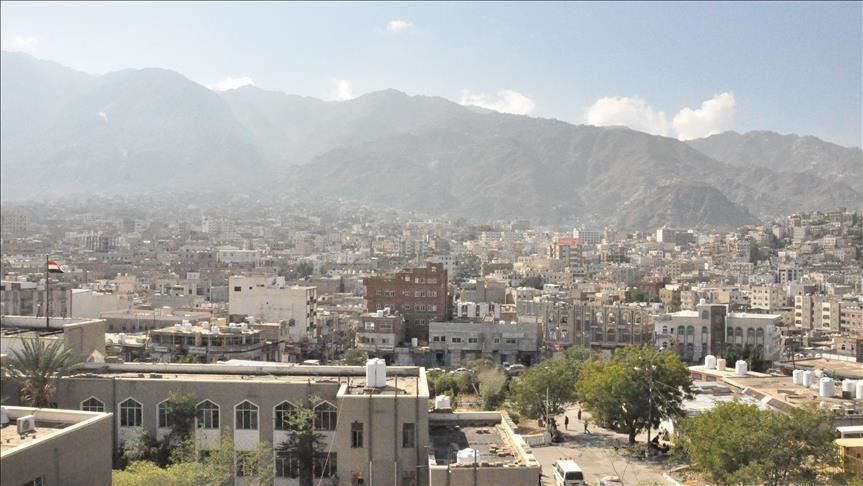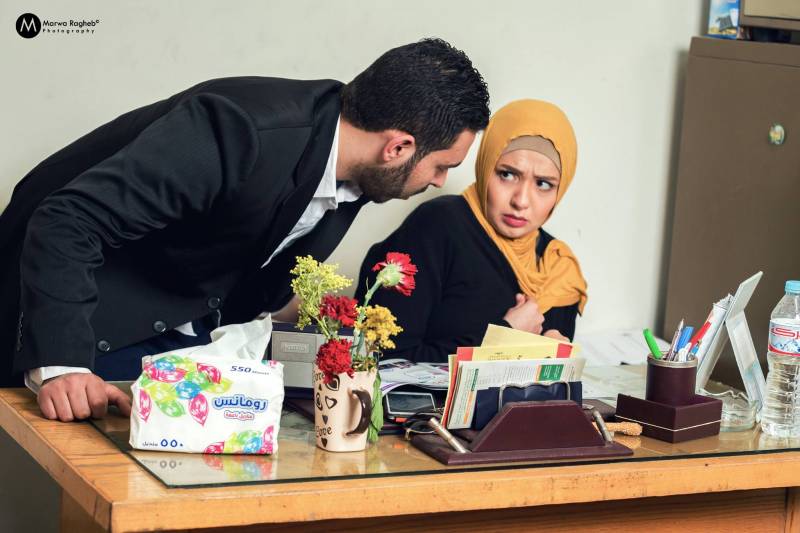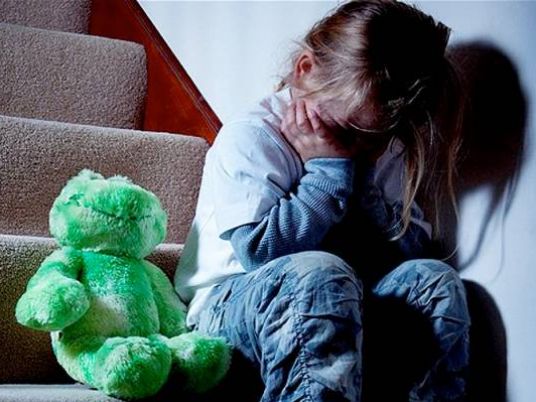Al-Masry Al-Youm received a message from Omar Hazek, the poet that the Alexandria court sentenced to two years in prison in February of last year and fined him LE50,000 for participating without permit in a protest against the killers of Khaled Saeed.
Following is the message that is titled “A Christmas Tree in my Cell”:
I suddenly discovered that we became friends, me and the the prison, that is. Those who have not tried prison might find it ridiculous. Those who have not spent the August heat or the January frost in prison will never understand how I built a relationship with the narrow cell I am crammed in with my poor and oppressed inmates.
I got scabies in that cell. It was inevitable, but I was treated from it. Those who did not try prison cannot imagine how to deal with scabies. I was watching the disease creeping up my skin, let alone the endless scratching. I read about the spread of that disease in other prisons. By mid-summer, the disease had defeated all my defense mechanisms.
No one here wants to die. We all resist the disease. My friend Loai al-Ahwagy helped me a lot. “When we get out I will tell Mahinor [al-Masry] that I heard about her arrest while I was scratching my body with both my hands,” he used to tell me jokingly. Al-Masry was arrested in May 2014.
I convinced myself that I do not have the disease and that I am clean because I have a clean heart. For I love life and freedom, and I love the poor. Also, I did all I could to resist the disease. That was enough for me.
Today, when I see a picture in a newspaper of an elegant man or woman, I cannot help but think of how fragile we really are and how easy such elegance can disappear when you get sick. I have known so before but did not really understand it until I was imprisoned.
This is my friendship with prison. I smile whenever I think about how I experienced all that and survived it. I did not despair for a moment nor did I despise myself or regret that I was locked up. My consolation was that I am from a generation that had to pay a heavy price for the country to have more freedom.
Like any two friends, there are memories that I and my prison share. It is 29 December. It reminds me of the same time last year when I was in the Al-Hadra prison struggling against the cold. I was writing the first paragraphs of my novel “Life in White” that I have completed here after I wrote my other novel “Fish Heart” that my family said Dar Al-Ain would publish soon. I also wrote two other novels here, namely “I don’t like this City” and “The First Novelist of the City.”
I remember those cold and lonely nights. While my colleagues were sleeping, I used to go sit and write in the dim light of a lamp that the guards lit outside the cell. Sometimes they lit two lamps, which made it easier for me to see what I was writing.
I remember when we were walking on a cold day that I noticed the old guard in charge looked like he was a kind man. I asked him who puts on the light at night. He told me that it was he. So I asked him to always light both lamps and he agreed.
I am grateful to my colleague Islam Hassanein who moved over to let me sit on a part of his mattress under the dim light that was coming from the distant lamp so that I could write. I am grateful to Dr. Mohamed Hindawi who gave me his chair although he suffered from back problems. I am grateful to Sherif Farag who made a candle from oil, napkins and orange peel. In the end Hindawi persuaded the guard to light a small lamp in our cell. To me, this lamp was like my baby.
These days, I bath at dawn in the cold water of the Borg Al-Arab prison. I kind of miss the less cold water of the Al-Hadra prison. After I shower, I feel I have energy that can last me for 24 hours. I work on my Origami and take a cup of coffee.
These days, a new poem haunts me. I let the idea brew. The last poem I wrote was in 2012. Now poetry is coming back to me in my cell no. 5 of dormitory no. 23.
Another great thing is happening to me these days. Many of my friends were jealous of me whenever I won a prize. They were the same friends who were with me before I was expelled from the Bibliotheca Alexandrina after I was indicted. I never wanted anything from them except love and care.
Now I get love and care from my new friends. They are people that I never met before. I only got to know them after I was imprisoned. I get messages and presents from them. I get books, pencils and paper for my Origami.
I got a Christmas tree. It was allowed in because it is made of paper that you could fold and wrap in a small envelope. There was a message with the tree from an Egyptian woman living in Denmark. She wished me a happy new year and told me that she derives hope from the messages I write from prison.
I almost cried but stopped because this was no time for crying. It was a moment of joy that I was deprived of and that this strange friend of mine gave me to cherish.
When I placed the tree on my desk, which is made of a wooden crate for tomatoes, my fellow inmates were astounded because they never saw a Christmas tree before except on television. They asked me about the red crosses printed on the paper. I told them it was the flag of Denmark. “Happy New year,” they chanted for me in their Upper Egyptian accent.
I must go now to take another cold shower and get my dose of energy. Please pray for me.
My brothers in the love of this country, I wish you a happy new prison, I mean year.
Edited translation from Al-Masry Al-Youm




